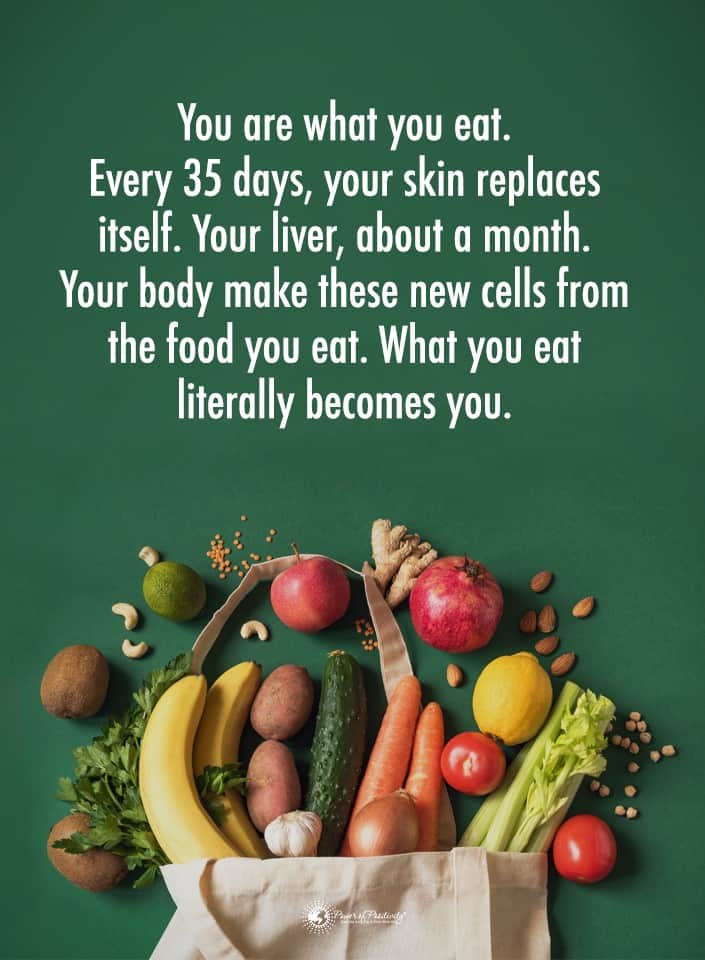Sweet food tastes good. That’s something that can’t easily be denied. But that statement doesn’t mean that you should eat a lot of sugary food often! Still, if you have a sweet tooth, you may be especially prone to giving in to sweet cravings.
If you’ve been on a sugar binge, you might be a little panicked as you worry about its effects on your health. But never fear! Here’s how nutritionists reveal five ways to undo the damage caused by an overindulged sweet tooth.
1. Plan A Balanced Next Meal
The process of consuming excess sugar causes your blood sugar to become very unbalanced, says author and registered dietitian, Desiree Nielsen. What this advice means is that you’ll experience a rapid sugar crash, which will only leave you craving more sugar. And the cycle continues!
Here is why you must ensure that your next meal counteracts the sugar cycle–and some food options that do just that:
· Slow-Digesting Foods
Your best bets for reducing that sugar cycle are nutrient options that positively affect digestion – precisely the kinds that will slow down nutrient absorption in the bloodstream. These are proteins, fibers, healthy fats, and colorful vegetables.
· Bitter Greens
Nielsen states that consuming excess sugar can lead to feelings of nausea and stomach discomfort. An excellent option to counteract those problems is bitter greens, such as celery, parsley, and cucumber. These foods have been used as digestive aids for a long time and have highly positive effects on that nauseated state. On top of that, bitter melons can help to reduce blood sugar levels mildly.
· Anti-Inflammatory Foods
Blood sugar spikes can cause inflammation throughout the body, which isn’t a good thing when it occurs in this unneeded manner. For your next few meals, Nielsen, therefore, recommends trying to add anti-inflammatory foods to your plate. Cruciferous vegetables are especially useful in this regard, and studies have found that they are successful in fighting inflammation. Other anti-inflammatory foods that you can use are ginger, seeds, and turmeric. Need something that’s sweet again? Try berries, which pack a delicious punch while fighting inflammation!
· Eat Probiotics
When you eat sugar, the harmful bacteria in your digestive system can grow and fester, leading to impaired cognitive and digestion function. Probiotics, which you will find in fermented foods, are a great way to counteract this in a positive manner.
· Mix Water and Fiber
Eating a lot of sugar can cause bloating. The combination of fiber and water can help bring down that bloating by flushing the digestive system, says Nutrition Curator founder and registered dietitian Allison Gross. The mixture will also help with satiety, so you don’t feel hungry as quickly and don’t cave to more sugar cravings. Beginning your day with fortified breakfast cereals is a great way to start your mornings with this hunger-beating combo.
2. Exercise to Beat Sweet Tooth Cravings
It’s challenging to want to exercise after stuffing your face with sweets. But the act of doing small, active tasks can help you recover significantly faster! Here are some actionable ways to use exercise to undo the worst of the overindulged sweet tooth:
· Move After Eating
You need not run a 5k or marathon right after you overeat sugar. Registered dietitian and NYU Langone’s Laura and Isaac Perlmutter Cancer Center nutritionist Amanda Bontempo, RD, says the act of moving around means your muscles get to use up the excess blood sugar. Just 15 minutes of walking after your sugar binge can already do wonders for your blood sugar levels, so get moving for positive results!
· Do Some Yoga
A lot of people who binge on sugar do so when they feel stressed out. But then high blood sugar can also lead to an increased risk of stress, especially in those with diabetes, say studies! Doing yoga as a form of exercise helps to ease that tension and promote positive thinking while also letting you move enough to reduce blood sugar naturally.
· Make Exercise Regular
After you’ve undone the worst of the damage from a sugar binge, make a change in your life by adding exercise to your regular daily routine. This will make it so your body is more adept at using up sugar and other resources, making you more resilient to sugar binges in the future should they occur. Regular exercise is also great for blood sugar levels overall.
3. Reduce exposure
Exposure to sugar is often what causes sugar binges in the first place. As with anything that you may hope to avoid, reducing exposure to sugar can work wonders for more long-term damage control. Here are some ways to do that:
· Get Rid Of Tempting Treats
The brain often has a more challenging time resisting junk food when it can see it clearly. Studies have actually found that visual exposure to sugary foods is more than enough to increase the risks of obesity. Basically, if it’s in plain sight, you’re more likely to eat it, especially since eating all that sugar gave you a dopamine rush you probably want to replicate. Clear these sweets away from your general vicinity to reduce exposure to them.
· Be Wary Of Hidden Sugars
Did you know that condiments contain many sugars in them, even when they taste sour or spicy? It’s one of the easiest ways to slip more sugar into meals that seem otherwise healthy accidentally. The trouble, of course, is the massive list of names used for sugars and sugar-equivalents, says Mayo Clinic Healthy Living Program wellness dietitian Jason Ewoldt, MS, RDN. Be sure you’re aware of sneaky terms used for sugar, like dextrose and fructose, so you don’t accidentally add them to your diet!
· Plan Meals Ahead
When you don’t plan meals, you run a higher risk of grabbing whatever you can without having time to think about it. Some of the most leisurely meals to eat on the go aren’t the best for you. Ideally, the few days after your sugar binge should have very well-planned meals. The most important is, according to Bontempo, the next day’s breakfast. Opt for low-carb, high-protein, moderate-fat meals and prepare them in advance, so you don’t need to rush and make an accidentally less healthy meal when you’re hungry.
 4. Long-Term Lifestyle Changes
4. Long-Term Lifestyle Changes
Sometimes, a sugar binge that sends your body reeling is just a sign that it’s time to make some changes in your life. Plenty of lifestyle alterations are great for helping your body better manage its blood glucose levels. Here are some lifestyle decisions to undo the damage from excess sugar consumption:
· Maintain A Healthy Weight
Controlling body weight is often crucial in helping your blood glucose levels stay under control. In fact, just losing 7% of your weight can lead to a significant diabetes risk decrease, which continues throughout the years, according to research. Insulin resistance and other issues with glucose balance are also much more common in those with larger waistlines or overweight BMIs overall.
· Sleep Better
Getting enough sleep is crucial to many different aspects of sleep, from immunity to positive thinking and from productivity to pain management. But did you know that lousy sleeping habits or too little sleep can lead to insulin resistance and elevated blood sugar levels? This is because not sleeping enough boosts your appetite, produces more cortisol, and inflames the body.
· Manage Stress Wisely
As mentioned previously, stress can wreak havoc on your blood glucose. This is due to the secretion of hormones called cortisol and glucagon, which are both released in times of stress. The hormones bump up blood glucose levels in response to the fight vs. flight stress response cropping up. Studies have found that meditation and acts of relaxation can bring down blood sugar, but any stress-relieving, positive methods will also do.
· Monitor Blood Sugar, If Need Be
If you’re beginning to have issues with blood sugar, learning to monitor your glucose levels may be a good idea. This information can help you decide on meals and activities based on the responding changes in your blood sugar, and research suggests it’s a pretty effective method.
5. Don’t Be Too Hard On Yourself
As a society, we’re often conditioned to be hard on ourselves after diet-related mistakes. This is a misguided way of handling a sugar binge, and it’s not something you should partake in. Here’s what not to do and why:
· Don’t Starve Yourself
When you first realize that you’ve overeaten, it’s easy to become frightening and try to undo the damage by abstaining from food to make up for it. Unfortunately, the sugar crash that is sure to follow from eating sugar and then not eating for hours can be bad for mood and positive thinking, says nutritionist Caroline Bienert. So eat as usual – choose your food more mindfully!
· Keep Your Immunity Strong
Being hard on yourself can often mean overextending to make up for your perceived wrongs, which opens you to all sorts of illnesses. Instead of letting that outcome happen to you, focus on keeping your immunity up to par by eating foods like turmeric, mushrooms, and oregano, suggests Bienert. Don’t forget that sugar consumption can bring down immunity, according to research, so it’s even more critical that you stay in good shape.
· Don’t Feel Too Guilty if You Occasionally Feed Your Sweet Tooth
It’s okay to go all out on sugar now and then. A sugar binge now means that you’ll have to wait a while before you can eat a sugary treat again, but that doesn’t have to be a bad thing. Bienert notes that guilt has a funny way of being counterproductive. Feeling too upset with yourself for a binge of any kind is only more likely to cause you to cave into cravings later, so focus on positive thinking above scolding yourself.
 Final Thoughts on Trying These Tips to Undo the Damage Caused by an Overindulged Sweet Tooth
Final Thoughts on Trying These Tips to Undo the Damage Caused by an Overindulged Sweet Tooth
Overeating sugar is terrible for you, plain and simple. But you’re human, and sometimes, those cravings are going to be too hard to resist. When you do fall victim to desires, knowing how to counteract your overindulged sweet tooth can be a lifesaver. As you work on improving your willpower, you’ll also be armed with backup knowledge that helps you undo some of the worst of the occasional sugar binge.





















